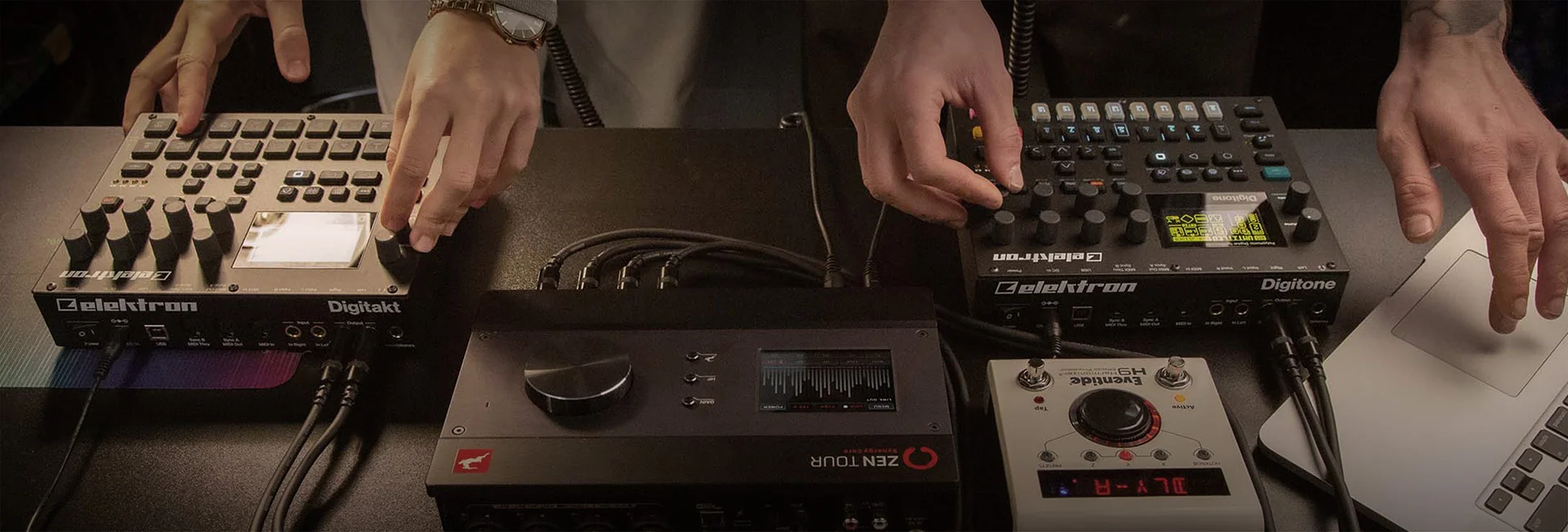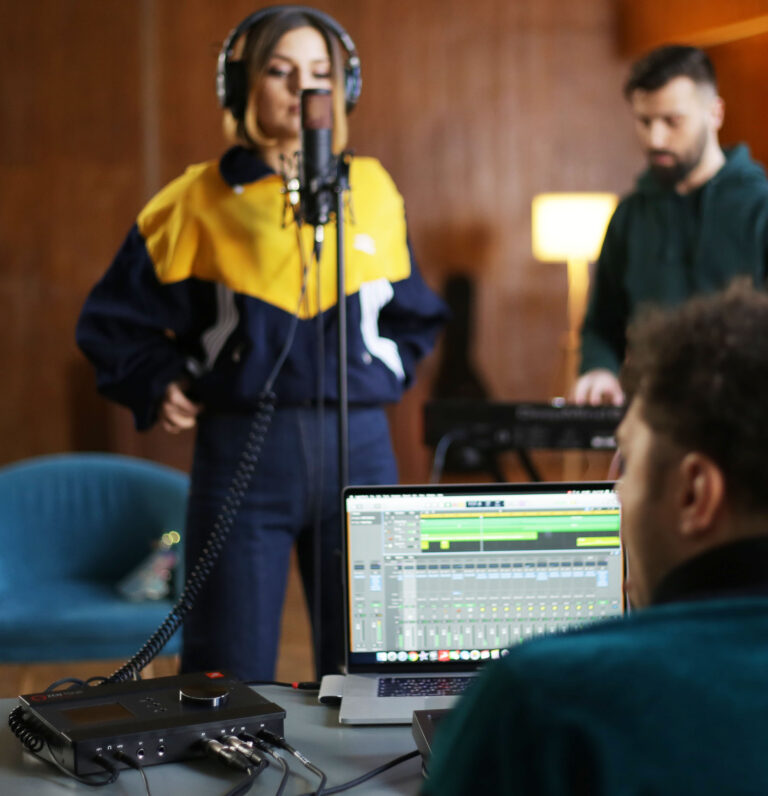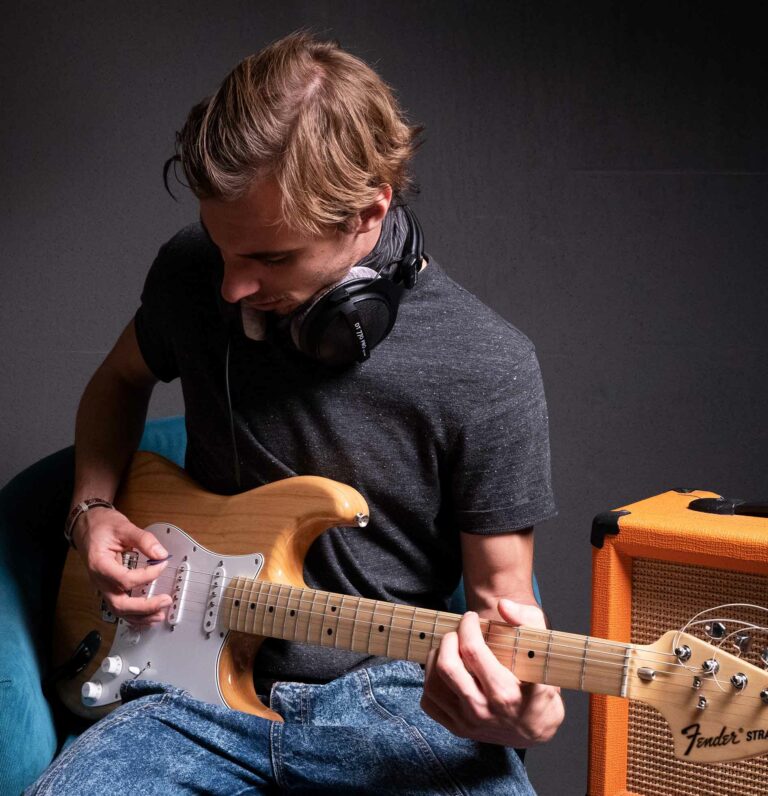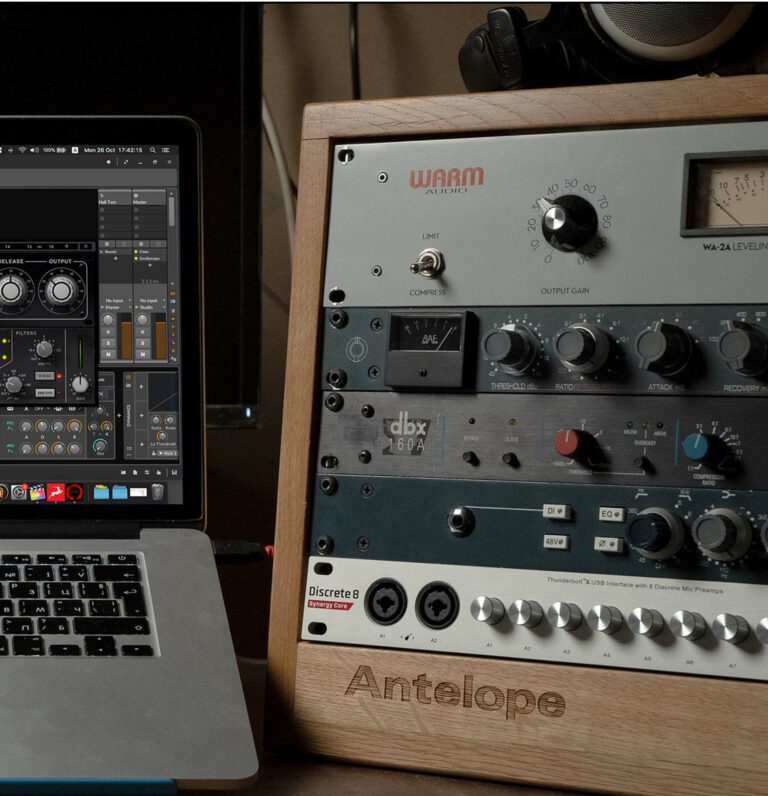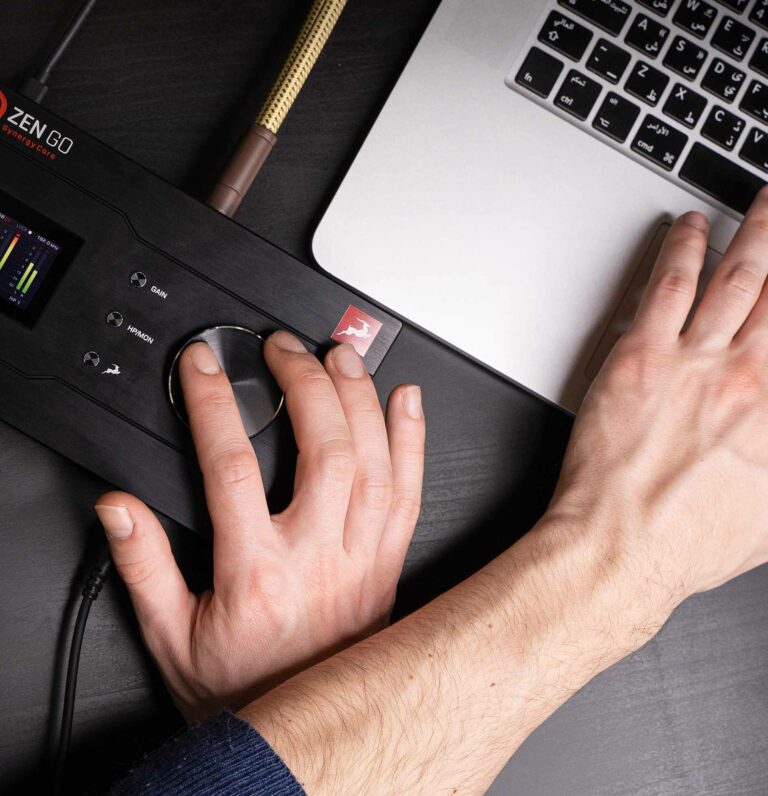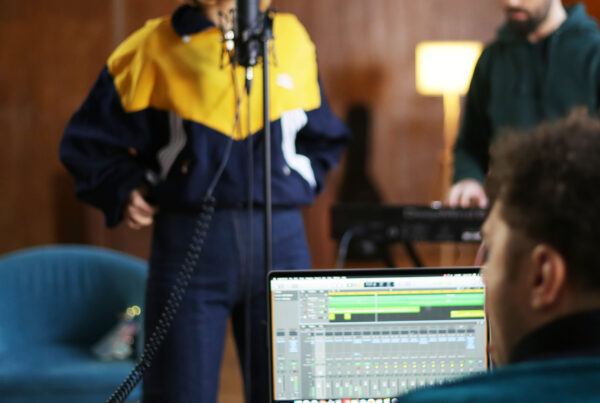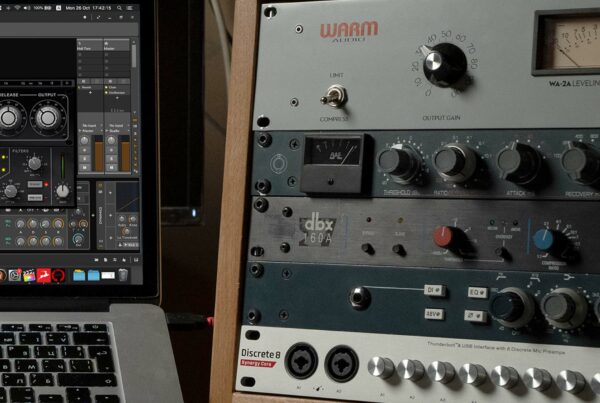Regardless of which country you reside in, the music industry has its own ecosystem with all its colors and shades. The rules of the outside world don’t always apply. One must learn how to play the game to survive and thrive in it. For instance, while a degree in certain professions from the “real world” might secure a position or a job, your degree likely means nothing if you’re a musician, independent artist, or involved with music production. In those cases, you would often find that other qualities can have a much more significant impact on your music career.
In this article, we’ll be exploring the importance of networking for a sustainable career as a producer. We’ll cover some of the basic principles that would push you forward and would never let you down.
A lone wolf vs. the pack
The technological era we live in has made the tools we need to create, record & mix music readily available and cheap. It is no secret that in many genres of music, a producer today can get by with a single laptop and headphones.
However, there is a massive difference between doing everything yourself because you have the means to do so and doing it because you’re the best person for the job. A red flag that always tells whether a music producer is an amateur or not is if they are too precious to do everything by themselves.
An excellent example would be an amateur producer attempting to mix their own work because they have the tools to do so. In that case, the producer would be disregarding the fact that mixing is a craft of its own. It takes decades of hard work to master it and hiring a person who already has the experience can only make the producer’s work sound better. However, when the producer chooses to do it by themselves, they are leaning on their insecurities. Their skills are unproven, so they might believe that doing everything by themselves would give them credibility. These are false values. What would provide them with credibility is the final product. That is what everybody cares about.
A great example is Daft Punk’s album “Random Access Memories.” That incredibly successful work has a credits list longer than this article. Yet everyone knows it as Daft Punk’s album, and not “that album with the 100 credits”.
Many successful professionals understand this concept. Making music is a collective process. Mastering each element requires years of experience. Sourcing out and combining individuals who have done their time and specialized in certain areas can make the process easier and the final product better. This is where The Pack mentality can be of service and where networking becomes of utmost importance.
How do you network as a music producer?

Expanding our networks can help us deliver the highest standard on a job and lead to much more future work.
Despite what many believe, networking as a music producer is a process encompassing more than just reaching out to new clientele. When mastered, the art of networking can yield more significant results for your career than any degree or otherwise qualification. In this chapter, we’ll individually explore some of the different layers of networking so we can put together this complex puzzle.
How do I make connections in the music industry?
Face-to-face interaction is king. It always has been and probably always will be. The people who thrive in the music industry understand that the internet is filled with unfiltered opinions and false representation. That makes face-to-face human interaction more valuable now than ever has been.
We believe it is crucial to understand and decide early on in our careers – which side of our networking would be done online and which would be done face-to-face. Doing so would give us clear guidelines on what we are allowed to do when networking online. To build a reputation in the music industry, one must set invisible guidelines to keep them in check. Here is an example:
Many industry professionals today thrive with the online cold sale. Watching their success can fool producers into putting their time and effort into building their careers with a similar business model. For them, that would mean committing to a future of cheap services which would attract artists that are not serious about their careers and are unwilling to invest in themselves. Hence why they are looking for cheap services online. The great music and artists that invest in themselves are found in either face-to-face interactions or word-of-mouth recommendations. Choosing the wrong business model would put our reputations at risk and seriously damage our future.
So, what about our online presence? A great way to take advantage of the internet is to use it as a giant online CV rather than a discovery method for our clients. The primary discovery method can still be face-to-face or word-of-mouth, but our online presence can be used to solidify our client’s confidence in us. It can serve as a confirmation of who we are and what our experience is.
Overselling

Watching people oversell themselves on Instagram and other platforms can make it easier for us to do the same in face-to-face interactions. That is a mistake. We are setting the bar too high by overselling ourselves, making it much harder to deliver later.
People don’t like to be told what to do, and they want to discover things for themselves. This is fundamental human nature. By allowing our potential clients to find things about us rather than telling them everything ourselves, we are essentially making them curious. We are also making them personally attached to what they’ve discovered and are making them reluctant to talk about it with their friends.
Jack of all trades - master of none

It’s common knowledge that the people who thrive in our industry are often multi-skilled and multi-functional. That’s why we often find a producer who can play a few instruments, record, mix, and even master their music. They might do some photography on the side, video editing, and other things outside music marketing or music production.
How we decide to present those additional skills and activities during our networking is crucial to how we are perceived. Being good at other things does not mean we should push them in a conversation or present them as an equal to our primary focus. Doing so will quickly make us look like a jack of all trades and a master of none. If we aim to work with high-end artists with big budgets, we must understand that these clients are looking for highly specialized people with focus and determination.
How do you build your network as an artist?
When networking, we often try to build a persona in someone’s mind that represents our values, skills, and experience. The message we convey is of utmost importance, and I’d like to discuss what values & skills we should push forward in a conversation, post, video, or other forms of communication.
At the beginning of this article, we mentioned that our industry is not confined to the rules of the “real world” and how they’re far more beneficial qualities a producer should have than written qualifications. Talent is essential, but it is also abundant, so it is not the only thing you need to build a career as a producer.
Some other qualities which would undoubtedly lead to more work include:
- How easy are you to work with? As a producer, if you are easy to work with, you will inevitably get more work. If you show artists, you understand them and are willing to work with them on their ideas, they will always come back to you and might eventually refer you to other professionals.
- Can you deliver? The first thing that sets apart amateurs from professionals is the ability to finish projects. You’ll be surprised how many beginner producers cannot complete their work and deliver on their promises. To close sales, they often oversell and promise too much, which leads to them not delivering. Consider promising less, but make it known that you will put everything in it. That will allow you to overdeliver and will get you more points in the bank.
- Are you reliable & consistent? Being able to deliver consistency makes us predictable. That in itself makes us reliable. Consistency is key to showing professionalism and building trust with your clients. By being consistent in your promises, delivery, work, and standards – you will show your clients, you are reliable.
Those 3 examples above are just a few of many skills you should have for a prosperous career. In summary, talent is not everything and you might want to leave your ego at the door if you want to be successful.
Where to meet new clients?

That question has no straight answer as every place and community has its own ways. That being said, live gigs and music events are a fantastic gathering of artists and musicians no matter where you’re based. One way to focus your social networking search would be to look for local artists through a social media platform like Instagram and find their upcoming gigs. Before committing to going, do some research on the artists. Have a listen to their music and think if you can contribute to their sound and be of any help. If so – feel free to introduce yourself online without making a sale. Make it known that you like their music and want to see more of them. That’s an excellent opportunity to visit their upcoming gigs and prove to them you’re interested. If you go prepared (know their released songs; have notes with feedback) and start a conversation with them without being too pushy – you will most certainly get noticed. You would have done more than anybody else who tried to make a sale through an Instagram message.
Other places to expand your networks via face-to-face interactions could be music seminars, live conventions, and music expos.
Climbing the studio ladder

Another great way to build a career is through the good-old studio ladder. It is needless to say that having skills and experience as a studio engineer can serve you well when working as a producer. Many of your colleagues are producer-engineers, and that is their advantage. They know how to manipulate sound in a studio.
Getting an education in engineering or even online tutorials on YouTube can give you the basics in this field. You can use that to hang around studios and beg them for an unpaid tea-boy job or another form of apprenticeship. Within a few years, you could be running the studio. If not, at least you would have had the chance to learn new skills and create connections.
Trade and barter
One more example of how the rules in our industry are wildly different from those in “the real world” is how we get paid for your labor. Many artists, producers, engineers, and musicians are people with second jobs. These people often make little money and struggle to invest enough in their musical goals (or at least in our beginnings). That is why we have built our industry on trade and barter. Good-old exchange of services.
This is where having additional skills like engineering can be resourceful. If we come back to the Studio Ladder example, we can easily see plenty of opportunities for barter. Here is one: after working as an engineer in a studio, we might become essential to their operation. If the studio can’t afford to pay us for our time, we can offer an exchange – personal studio time for our service as an engineer. That’s how we become a producer with a studio, rather than just a producer.
Anyone thriving in our industry is familiar with the concept of trading services and time instead of money. That principle can be seen from the lowest levels of the industry to the highest. Making yourself open to this form of barter is one of the most efficient networking tips to expand your reach and get new opportunities.
What platforms do music producers use?
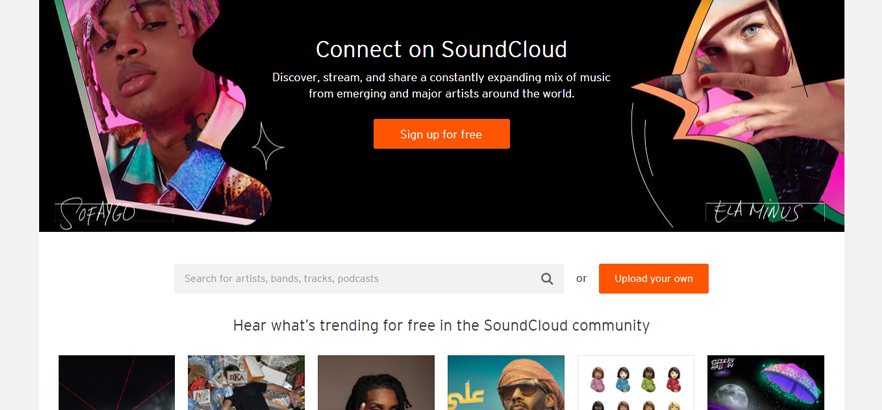
Having a vast choice of different online platforms and music blogs makes it easy for us to create profiles in most of them. If those profiles are left underdeveloped and no time is dedicated to them, you can quickly create a negative online reputation. You would be spreading your online presence too thin and thus struggle to catch up with the more developed profiles.
The key to success here is to focus on one or two networks and do them right. It is common knowledge that most of those platforms are designed like video games. They have rules and trends to be followed, which get you more points (followers, likes, etc.). Despite what you might believe, it is not only about the content you upload but also how good you are at playing the numbers game.
To develop good online profiles, I would encourage you to look for small courses and tutorials on succeeding on specific platforms. Get familiar with their rules, trends, and methods. If you’re not willing to comply – don’t create a profile at all and save your time for a different platform.
To summarize:
- Expanding your networks is the key to building a prosperous and sustainable career as a music producer.
- Work on your online presence but remember that face-to-face interactions are king!
- Develop your social skills and not only your musicality.
- Be a nice person, be reliable and be capable.
- Use your creativity to find ways to reach new clients. Be open to learning new skills and trading them for work.
The beauty of the music industry is that just like the sky is the limit on how much we can advance, the game’s rules are set by us. If we grow enough to put a dent in the industry, we become the ones setting the rules. We become the example that others follow.


